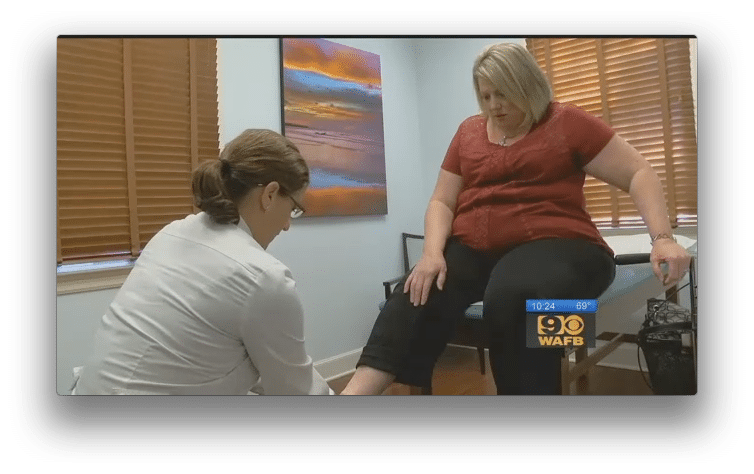Dr. Warner Featured on WAFB Healthline: Diabetic Foot Amputation On The Rise In Louisiana

Amputation is a leading concern for doctors and patients in Louisiana who live with diabetes. In our state diabetes cost Louisianians about $5.4 billion a year and a huge chunk of that cost goes towards amputation fees, with the average procedure costing about $70,000.
Louisiana leads the nation in diabetic amputation and Dr. Meredith Warner is looking to change that. Dr. Warner was recently featured on WAFB Healthline and discussed why it was important to her to educate the Baton Rouge community about diabetic amputation at the upcoming Charcot Conference. WAFB’s full feature on Dr. Warner’s efforts can be read below.
BATON ROUGE, LA (WAFB) – A Baton Rouge doctor is on a mission to lower the amputation rate for diabetics in Louisiana. Orthopedic surgeon Meredith Warner, M.D. thinks better coordination of care between doctors could save limbs and money, and she’s sharing that message with her colleagues.
“I cannot wait until I can go back and dance,” Wanda Alleman said while thumbing through old pictures.
The 55-year-old mother and grandmother are too busy to be slowed down by a condition called Charcot foot.
“It is kind of scary to know there’s a possibility you could lose your foot,” she said.
Charcot is a common complication of diabetes. Nerve damage leaves the patient without feeling in the foot, which makes injury more likely. Over time the foot becomes painfully deformed.
Many doctors lean toward amputation, but Warner thinks that decision is often premature.
“The ultimate goal is to save a limb that can be used,” she said.
In 2012, Louisiana had the second highest rate of people who die from diabetes complications. Amputation increases that risk. Warner wants doctors to work together to catch and treat complications sooner.
“If you can control diabetes to begin with, that would be great, but short of that if you can control the symptoms, it would help the state’s budget.” Warner explained.
“The state would save a lot of money, which could then be applied to things like nutritional counseling and weight loss to prevent diabetes, to begin with.”
But salvaging the limb is not easy. Alleman’s foot had to be surgically reconstructed, and her journey will be a long one.
“You have to make sure they have help at home. Do they have all the things they need like a wheelchair, getting here and there, and that’s a huge part of it. You have to coordinate every aspect of their lives,” Warner said.
Alleman will have to check in with Dr. Warner for the rest of her life. She sometimes has to wear a special boot or other types of orthopedic shoe. It may be an inconvenience, but she said she’s happy to still have the chance to enjoy life without a prosthesis.
“That’s what keeps me going. God and thinking about how there are other people worse,” she said.





